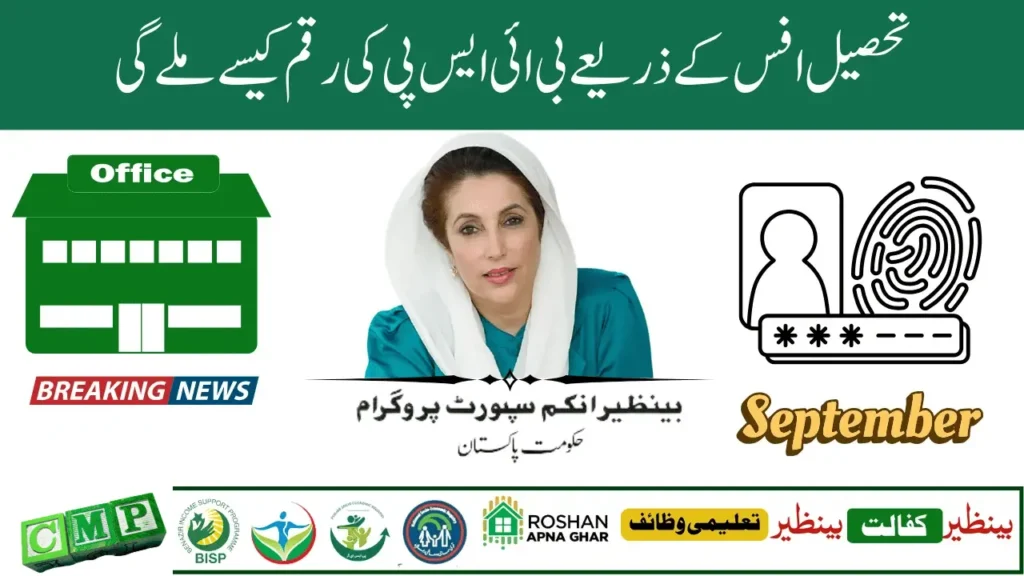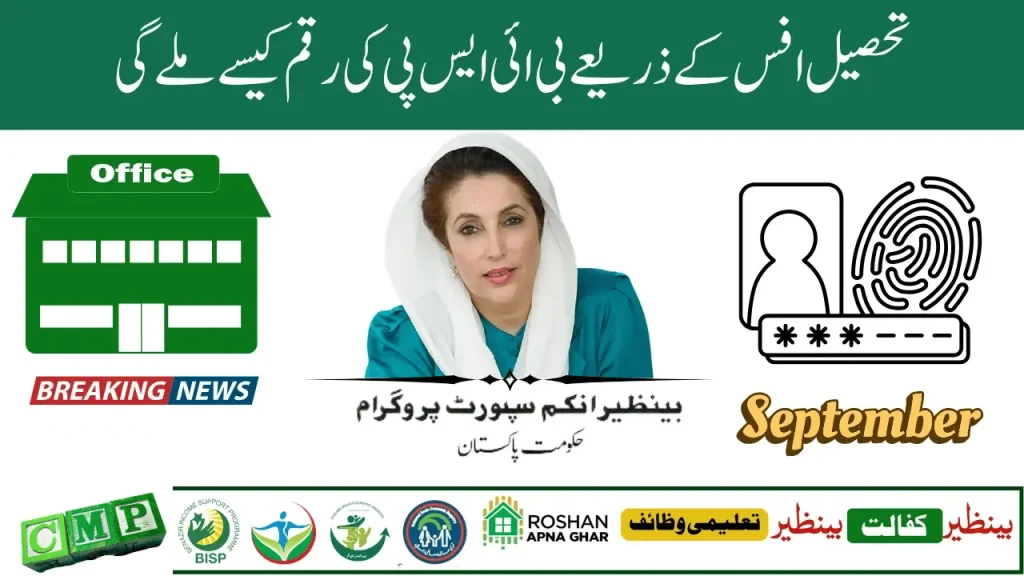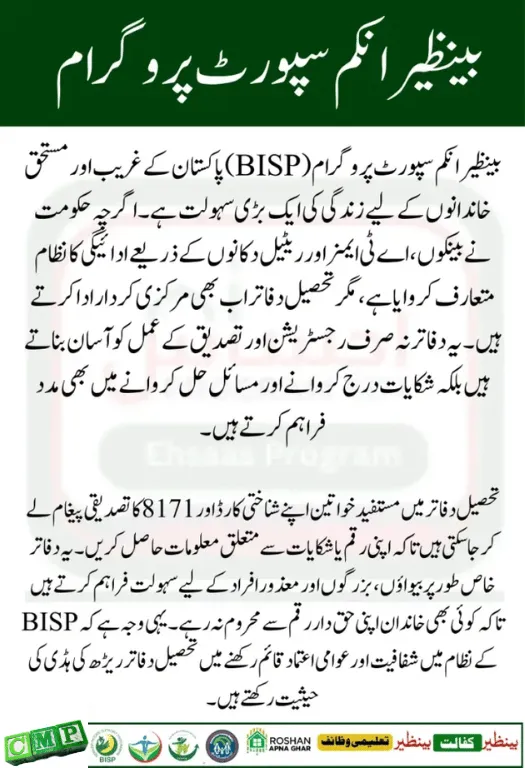The Benazir Income Support Programme (BISP) is Pakistan’s largest social welfare initiative, designed to reduce poverty and provide a safety net for millions of struggling families. For many households, the monthly cash assistance is not just financial support—it is survival. The stipend helps cover daily essentials such as food, education, medicines, and utility bills, offering dignity and relief to families living below the poverty line.
While the government has adopted modern methods like ATMs, banks, and retail shops for distribution, the role of BISP Tehsil Offices remains central. These offices act as the first point of contact for beneficiaries, supporting them with registration, payment queries, fraud complaints, and record updates.
What Are BISP Tehsil Offices?
A tehsil office is a local BISP branch at the sub-district level, ensuring services are available closer to people’s homes. With more than 385 offices nationwide, they serve as a direct bridge between the government and citizens. Families no longer need to travel to major cities for small issues—they can resolve them locally.
These offices are especially valuable for rural households with limited digital access. At a BISP Tehsil Office, beneficiaries can:
- Register for the programme.
- Update household details in the NSER (National Socio-Economic Registry).
- Get support for payment delays.
- Report fraud, deductions, or bribes.
- Seek help for widows, disabled persons, and senior citizens.
In short, they make the programme accessible, transparent, and trustworthy.
Core Functions of BISP Tehsil Offices
Tehsil offices are more than payment centers—they are support hubs. Their main responsibilities include:
- Registration & Verification: Accepting new applications and confirming eligibility through CNIC and NSER.
- Payment Guidance: Directing beneficiaries to the correct outlet, bank, or ATM.
- Complaint Handling: Recording fraud, unauthorized deductions, or delayed disbursements.
- Awareness Campaigns: Educating about biometric verification and new payment rules.
- Special Assistance: Helping widows, the elderly, and disabled persons with unique difficulties.
How Tehsil Offices Support Payment Distribution
The transparency of BISP depends heavily on efficient and fraud-free transfers. Tehsil offices strengthen the process by:
1. Guiding Beneficiaries
Staff guide families about the correct payment locations, preventing wasted travel and confusion.
2. Coordinating with Banks and Retailers
Tehsil offices coordinate with banks and retail agents to resolve blocked transactions, machine errors, or shop closures.
3. Preventing Fraud and Deductions
Illegal deductions of Rs. 100–500 have been common. Offices record these complaints, forward them for action, and conduct surprise checks to protect poor families.
4. Managing Transfers Across Districts
When families move, tehsil offices process transfer requests so payments continue without interruption.
Documents Required at Tehsil Offices
Always carry these documents when visiting:
- Original CNIC of the registered woman.
- 8171 SMS showing payment release.
- Old payment slips (if available).
- Complaint details (name of retailer, deducted amount).
- Household details for NSER updates.
Step-by-Step Visit Process
- Get a Token – Show CNIC at reception.
- Wait in the Queue – Sit in the waiting hall.
- Verification – Officer checks CNIC and SMS.
- Explain Your Issue – State if it is registration, payment, or complaint.
- Receive Proof – Get a case number or receipt.
- Follow Up – Return with your case number if unresolved.
Common Problems Solved at Tehsil Offices
- Unauthorized deductions by agents or shopkeepers.
- Delays due to technical or biometric errors.
- Biometric mismatches during withdrawals.
- Wrong outlet details in SMS notifications.
- Updating household records after relocation.
Why Tehsil Offices Are Essential
Although Pakistan has introduced digital wallets, ATMs, and mobile banking, many poor households cannot access them. Tehsil offices remain the backbone of BISP, providing:
- Local access for rural families.
- Complaint redressal against fraud.
- Transparent monitoring through surprise checks.
- Inclusive support for widows, the elderly, and disabled persons.
Conclusion
The BISP Tehsil Office is more than an administrative branch—it is the heart of the programme. While modern banking solutions have improved convenience, tehsil offices remain essential for transparency, fairness, and personal assistance. For millions of poor families, these offices guarantee that they receive their rightful payments without exploitation.
FAQs – BISP Tehsil Offices
What if someone demands extra money for my BISP payment?
All BISP services are free. Report bribes or deductions immediately via 8171 SMS or helpline 0800-26477.
Can I withdraw from any shop?
No. Payments can only be collected from the bank or retailer mentioned in your 8171 SMS.
Can I receive BISP payments with an expired CNIC?
No. Renew your CNIC through NADRA and update records at your tehsil office.
What if I did not receive an 8171 SMS?
Visit your nearest tehsil office with your CNIC. Staff will check your status and guide you further.


